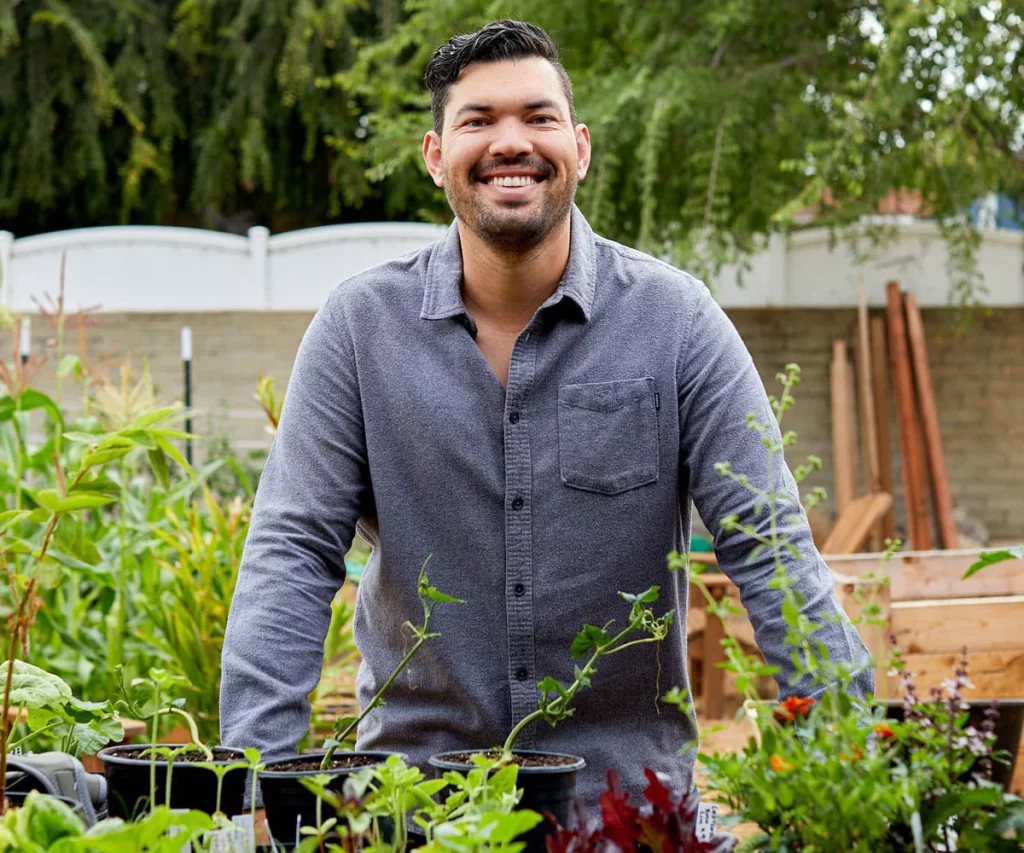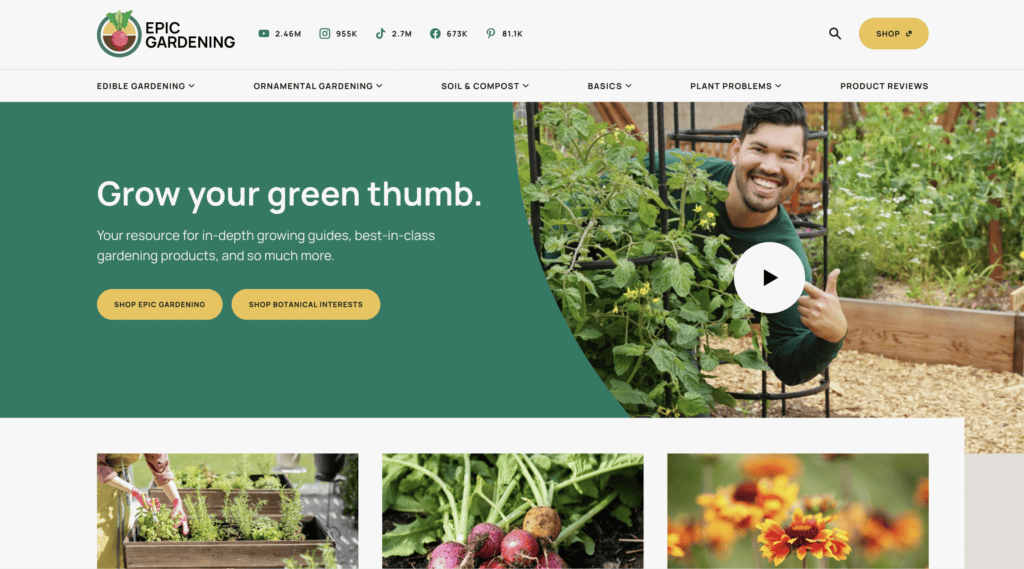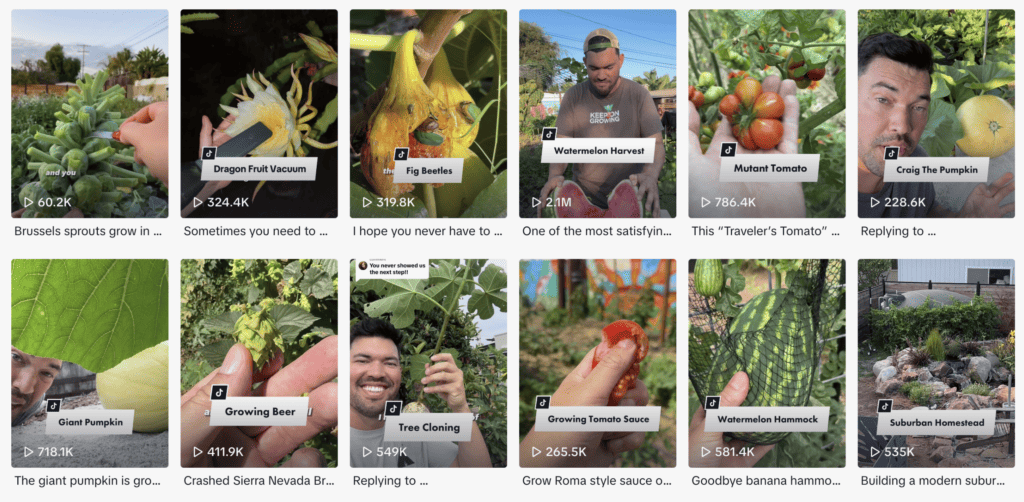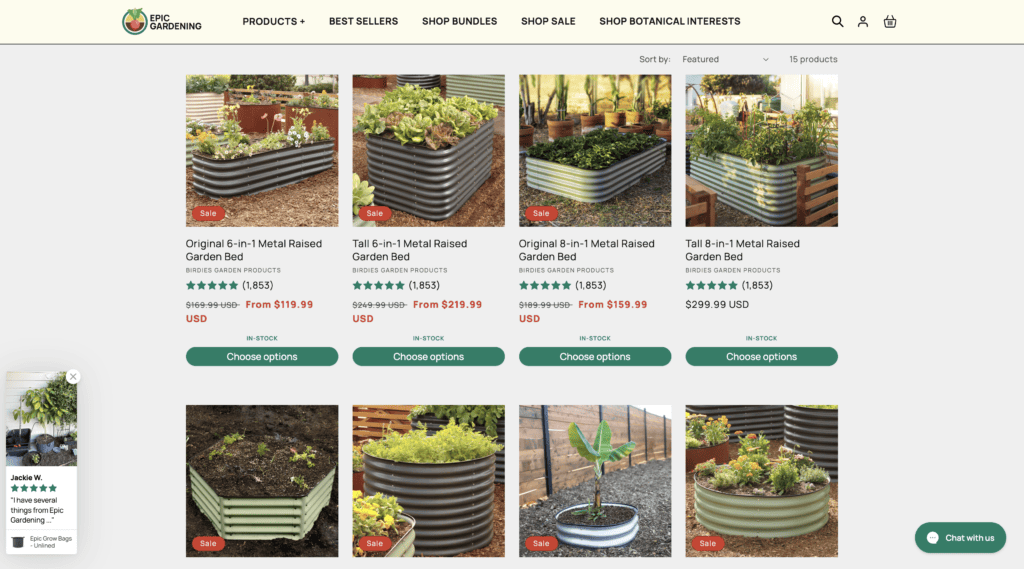
Hey Kevin, tell us a little bit about yourself and your story up until the point where you started epicgardening.com
Yeah, so if we want to get particular, I bought the domain epicgardening.com back in 2013 and threw up a very simple WordPress blog. I went full-time on Epic Gardening in 2016. Prior to that, I was building little blogs, doing some local website building, local marketing services, and local SEO stuff.
Raised some money for a personal relationship app, joined a publishing startup called Book in a Box (now called Scribe Media), and was the second employee there doing a lot of the marketing and book launch stuff. I left about 18 months in there to go full-time on Epic Gardening.
Since then, Scribe has done some really big books, which is cool. But before going full-time on Epic Gardening, I had tried a lot of different things.
What was the pivotal reason for you to go full-time on Epic Gardening? You had a cool thing going with Scribe.
From my early 20s, I had been self-sufficient. I went to college at UC Santa Barbara but paid for school by playing online poker. It put me on this track of wanting control over my own destiny and not wanting a traditional job. So I tried to figure things out on my own.
Eventually, I decided to work for someone to learn what I was doing wrong. That’s what I did with Scribe. When I made the transition to Epic, the website was making $300-$400 a month from affiliate earnings and AdSense. I thought I was going to be a farmer initially but put that on pause to scale the blog.
In 2-3 months, I was at $2,000-$3,000 a month. By the end of that year, about 6 months in, I was hitting $4,000-$5,000 a month. That was enough for me to make a run at this thing.
When you expanded to YouTube and podcasting, it must’ve been a considerable leap from writing articles. How did you find the transition?

Transitioning wasn’t as hard as you might think. I took a straightforward approach. Since I already had popular content on the website, I just converted those topics into different media formats. Instead of starting from scratch, I had a foundation based on what my audience already loved.
It’s impressive that you leveraged your existing audience to bolster your new platforms. Can you dive a bit deeper into your strategy, especially on YouTube?
Absolutely. For YouTube, the key was integration. When I started creating video content, I didn’t solely rely on the YouTube algorithm to get views. I took my top-ranking articles, like the one on “how to grow basil“, and embedded corresponding videos directly into them. It gave my videos an instant boost in views because my website already had traffic.
It was almost like gaming the system, but not in a dishonest way. I was providing even more value to my visitors. They got both a detailed article and a video tutorial. It was a win-win.
It’s like you built a self-sustaining ecosystem with your content. With such an approach, did you find any particular challenges?
Every platform has its challenges. With YouTube, it’s about retaining audience attention. Blog readers can skim, but on YouTube, you need to keep them engaged for the entirety. That said, because I already had insight into what my readers found valuable, I could craft videos that addressed those points concisely.
And how about podcasting? That’s a different beast altogether.
True, podcasting does present unique challenges, mainly because discovery is mainly word of mouth. There isn’t a solid algorithm like Google or YouTube that helps new listeners find you. But again, the blog came to the rescue. By embedding podcast episodes in my top articles, I was able to tap into my existing audience and grow organically.
Your growth strategy clearly leans heavily on integration across platforms. As you were diversifying, did you ever worry about spreading yourself too thin?

It’s a valid concern. Spreading out over various media requires time and different skill sets. But I saw it as building resilience for Epic Gardening. If one platform faltered, the others would provide a cushion. And more importantly, it enriched the user experience. They could read, watch, or listen based on their preference.
Many people struggle with deciding whether to expand a single topic across many mediums or to keep writing about new topics. Given your experience, any insights?
In my 2016-2017 transition, I was the sole writer for the blogs. I wrote the first 400 in-depth gardening articles. But then I felt that I became the bottleneck. It wasn’t valuable for me to keep writing. I needed to focus on promotion and link-building.
I hired a writer who managed the entire blog. This allowed me to focus fully on YouTube and understand it better. I’d advise not trying too many platforms early on. It doesn’t work.
Let’s look at the subsequent couple of years, after 2016 and 2017. How did things evolve?
2017 to 2018 was about scaling on the models I had: YouTube and podcast. I got a book deal at the end of 2018, which was more for authority than revenue. From a revenue perspective, books aren’t great. But from an authority perspective, they’re powerful.
Then, in 2018, I made a growth move by purchasing a site to enter the houseplant world. I bought the site for $1,000 dollars, and it paid itself off quickly.
2019 was transformative. I started selling raised garden beds, and that changed everything. I bought a container of them for $35,000, sold them quickly, and then reinvested. Products made up half of the company’s revenue in 2019, even though it wasn’t a full year of selling.
What are some of the big things you learned in adding a product, an eCommerce shop? The whole process of getting the product from overseas and bringing it here?
I remember back in college, I forgot what these guys’ names were, but they were some of the first guys teaching how to source and sell products online. They made it seem really complicated. I had no experience in business then, so it felt sort of fake.
And then, when I bought a shipping container, I didn’t even know how to ship it to the customer. I thought about renting a storage space in San Diego and trying to figure out how to get internet into the storage so I could print labels.
In hindsight, that idea seems silly. But, I reached out to some friends, and they suggested using a 3PL (third-party logistics company) and a customs broker. So, I did, and it made the process much smoother.
It’s strange how I was so immersed in the niche authority site content world that I had no clue about basic commerce. But simply doing it forces you to figure out how.
You mentioned how by the end of 2019, product sales became half your revenue. I’m guessing this shifted the direction of Epic Gardening?

Absolutely. In 2020, product sales made up about 88% of our revenue, and now it’s over 90%.
And there’s a lot of luck involved, especially considering the timing before the pandemic. A lot of people were locked down and looking for home-based activities. And here I had this platform and product ready.
But there’s also the aspect of taking initiative. I mean, in 2019, we had around $500,000 in revenue across the company. And then in 2020, we jumped to $2.8 million because of product sales.
Did you end up producing and making your own products or continue white labeling?
Ideally, any eCommerce company would love to own the entire stack. But with us, for some products, we distribute directly from our main supplier.
But then, we have products like our Seedling tray, which we fully own now. And ideally, we’d want to migrate towards owning our whole line. But some relationships and products are better to just distribute.
So where are you taking this brand next?
In late 2021, we raised capital because we saw an opportunity in the garden market. We wanted to build the next-generation garden company from media to products. There’s a lot of poorly designed and wasteful products in the gardening world. We want to create better, more sustainable products.
We’re also expanding our educational side, bringing new creators on board. We’ve also acquired a seed company called Botanical Interests. Our goal is to engage our audience right from the start and offer them education throughout their gardening journey. We aim to redefine the garden market through Epic Gardening.
What does your team look like?

I’m the CEO of the company, and we have about 80-ish people on the team now. We’re hiring some competencies that I could get good at. I believe I have the ability to get good at the operational side, the finance side, etc. But the question is, should I? The answer is probably no. We’re hiring better players in those roles to help out.
As for being the face of the content, I can never fully remove myself from it. But I am trying to grow the next generation of creators. My garden assistant, whom I hired for about $20 an hour, was a geology PhD who lived down the street. A few months in, he quit his job to work full-time for me.
I started showing him in the content, and people really liked his energy. Now he has a following on YouTube, Instagram, and TikTok.
If I do my job right, I’ll always be the “Godfather” of the system, but I hope to bring on more experts in fields like houseplants, succulents, bonsai, etc., and build a media network powered by products.
In 2022 you made around $27 million in revenue. Was it challenging to scale at that pace?
In my heart of hearts, I never imagined I’d be on this journey. Before raising capital in 2021, our revenue was substantial with a small team. I was grappling with operational complexities like managing sales tax in multiple states.
I was slow in scaling the team because, at the core, I was just making videos, selling products, and enjoying the growth. I think I’d love to focus on business strategy, company culture, and content creation.
Operational aspects like finance, inventory planning, and managing a seasonal business are things I understand, but I’m not the best person to handle them anymore. It’s probably better for me to focus on the brand side of things.
What advice would you give to those looking to increase their monthly income and stabilize their earnings?
If someone isn’t keen on products or investments, I’d advise focusing on making their business resilient. In the early days of Epic, if I decided against offering products, I’d focus on mitigating weaknesses.
Businesses face risks like search ranking drops, affiliate revenue changes, or unexpected decisions like Amazon’s commission cuts. My approach is always to preemptively tackle threats to the business. It’s about creating a system that’s resilient.
However, there’s always a threshold. Some individuals, like a friend of mine on Twitter, are content running lean operations with high-profit margins. They aim for resilience but can still get hit by unexpected changes like search algorithm updates. It’s essential to diversify and protect your business.
You haven’t done and digital products – Any reason why?
Well, the physical products in the garden space, the world is vast, right? And there’s a lot of opportunity to improve them. My perspective has always been, generally speaking, information wants to be free.
I have a 45-minute video on how to grow microgreens, which are like really small baby greens. It’s got millions of views. If I’m going to make a course, which I actually think is a play we’d like to do in the next year or two, is sort of like Epic Gardening University.
I’ll teach some courses, but I’d love to bring in experts, like the guy who’s grown 4,000 types of tomatoes, to teach you everything you could ever know about tomatoes. That is functionally more valuable than my tips on how to grow tomatoes.
It’s something you can’t get anywhere, and he’s probably not going to make that. So if I can get him to make it with us, then I will do that. I think it would be a massive driver of business for us.
That’s exciting – Where can people follow you?
I’m trying to build a little bit of a normal non-gardening audience as well, like talking about some business stuff, so that’s on Twitter @kevinespiritu.
Everything else in the garden world, if you want to check out, is Epic Gardening. Our seed company is called Botanical Interests. Thank you so much for having me.

